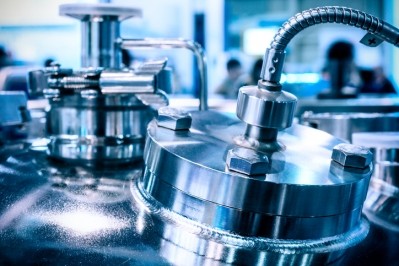Gas to protein maker UniBio aims to raise $23.5m in IPO

The alternative investment market (AIM) is the London Stock Exchange’s international platform for smaller growing companies.
Henrik Busch-Larsen, CEO of UniBio - a methane gas to bacterial protein meal producer - is also planning to move its management headquarters to London, and, by doing so, raise its profile globally.
“Our objective is to build an international business. West Hill Capital, our London based financial advisor, is currently undertaking a pre-IPO private placing and is getting a lot of inquiries from potential investors,” he said.
UniBio, said the CEO, will use the funds generated from the IPO to develop its commercial capabilities.
The company's patented fermentation technology – U-Loop technology – enables natural gas to be converted into a single cell protein with an amino acid profile that is comparable to that of fish meal.
It does this via a process in which bacteria ‘eat’ the C1 connections in the methane gas and thereby grow and are converted into protein granules through a traditional downstream process.
Research tie-ups
From next September a pilot-scale U-Loop fermenter will be in operation at the Technical University of Denmark (DTU) where a new fermentation center is being built as part of a research project partly funded by Denmark’s Innovation Fund.
The focus is also on adding value to the bacterial protein meal - UniProtein - by manipulating the profile of the product.
UniBio is currently working in collaboration with DTU and Aarhus University to create a specific form of UniProtein in which the amino acid profile is tailored to pig feed. This project began in November last year and the team planned to test the new recipe next autumn, once the new center was up and running.
At the same time, the Southern University of Denmark is carrying out a life cycle assessment of the single cell protein.
In November 2014, Busch-Larsen told us: “When you look at the pressure on agricultural land and world fisheries, this is a much more sustainable source of protein. What’s more, by using natural gas for fermentation and production of single cell protein instead of flaring it, CO2 emissions are reduced considerably.”
Commercial production
He also said then that it would be at least three years before the company will have large scale industrial plants for UniProtein. “The route would be to establish a commercial size facility in collaboration with industry partners."
And the UniBio CEO estimated that investment of $70 to 80M would be required to run a commercial scale plant capable of producing 25,000 tons of protein annually.
“It is an attractive opportunity when you look at the market drivers. We’ve seen natural gas prices peel away from oil prices and fishmeal and soy protein prices are rising steadily year on year. There is huge demand for a new protein source with a low environmental impact.”













